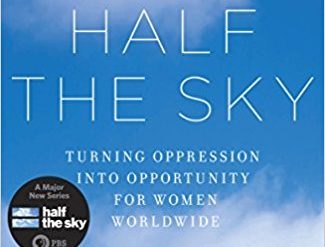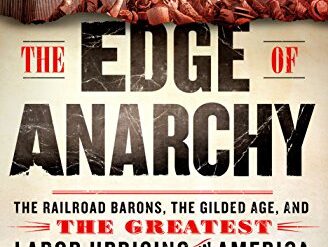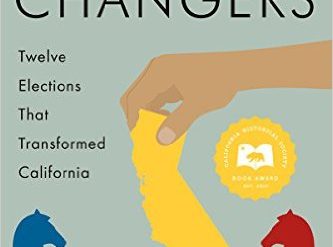
Two recent books set out to paint a picture of working-class culture. One is White Trash: The 400-Year Untold History of Class in America, by Nancy Isenberg. I found the book to be too densely written and couldn’t finish reading it. The other is far more accessible. Hillbilly Elegy: A Memoir of a Family and Culture in Crisis, by J. D. Vance, is the haunting story of one man who escaped the bounds of his class and now sometimes finds himself adrift. The book also paints a vivid picture of America’s hardening class divisions. It’s a riveting illustration of widening economic inequality.
An intimate portrait of hillbilly culture
The outlines of Vance’s story are easily described. Born and raised in a Rust Belt town in Southwestern Ohio, Vance was abandoned by his father at an early age. His mother, a nurse, descended into drug addiction. From the age of sixteen, Vance was raised by his mother’s parents (Mamaw and Papaw). Though she packs pistols, swears like a sailor, and intimidates nearly everyone, Mamaw brought long-needed stability and encouragement to the boy’s life.
Hillbilly Elegy: A Memoir of a Family and Culture in Crisis by J. D. Vance (2016) 291 pages ★★★★☆
After a four-year stint in the Marines, Vance attended Ohio State University. He graduated summa cum laude after one year and eleven months! (This man is clearly no slouch.) Yale Law School followed. At the age of thirty-one, married and settled into a job as an attorney, he looks back on his life and his family with brutal honesty and a tender touch. Some might call his family and their neighbors “white trash” or “rednecks.” Vance finds the term “hillbilly” more precise and uses it throughout the book.
It’s the culture that handicaps Vance as he transitions from life in a hillbilly community to Yale and then a New York law firm. He clearly has the necessary intelligence. But he doesn’t possess the social capital to fit smoothly into his new environment. The problem isn’t that he doesn’t know which fork to use at a banquet (though that’s also true): worse, the social cues and sometimes the vocabulary seem to throw him. Some might call this culture shock.
Vance’s portrait of working-class poverty is at times alarming. It’s disturbing throughout, with its portrayal of unstable families, substance abuse, domestic violence, willful ignorance, indolence, and occasional welfare fraud. Vance writes skillfully, and his story is suspenseful to the end. The biggest surprise is how beautifully he survives a childhood that seems impossible to bear.
About the author
J. D. Vance was born and raised in the working-class community of Middletown, Ohio. His “people” come from the coal-studded region of Eastern Kentucky, where poverty is as severe as anywhere else in the United States. He now serves as a United States Senator from Ohio, widely viewed as a Right-Wing Republican.
For related reading
This book is one of Two dozen excellent memoirs. This is also one of the books included in my post 10 enlightening books about poverty in America.
For an award-winning fictional account of life in the same area, see Demon Copperhead by Barbara Kingsolver (An engrossing novel of the drug epidemic).
Like to read books about politics and current affairs? Check out Top 10 nonfiction books about politics.
If you enjoy reading nonfiction in general, you might also enjoy:
- Science explained in 10 excellent popular books
- Great biographies I’ve reviewed: my 10 favorites
- My 10 favorite books about business history
And you can always find my most popular reviews, and the most recent ones, on the Home Page.


























